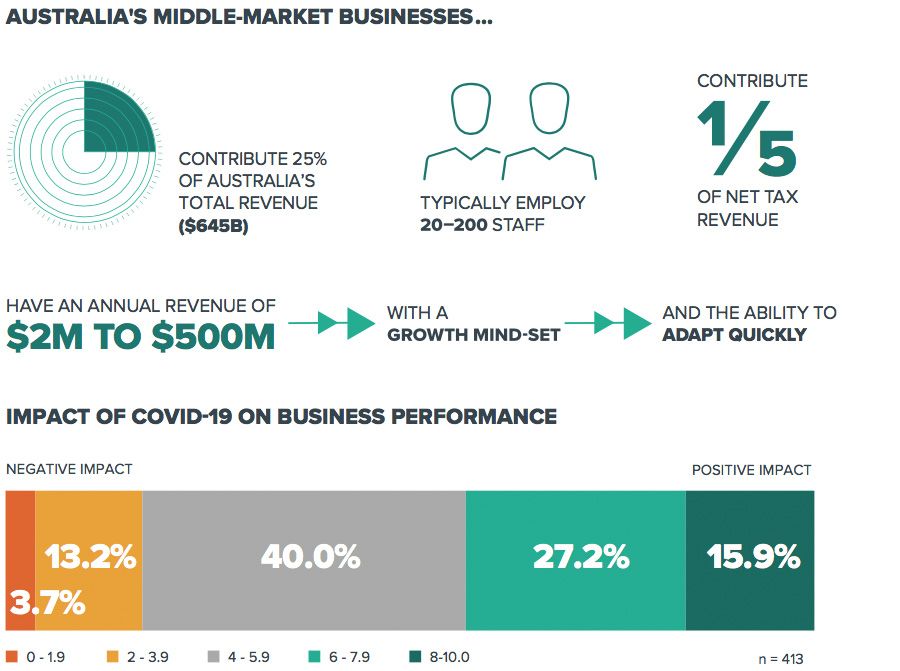Key traits and priorities of center market enterprise leaders

Australia’s mid-market remains unaffected by the pandemic and its effects: many are moving forward with more confidence than they were in 2019. Pitcher Partners hired Forethought to investigate the crucial economic segment.
Medium-sized businesses – both family-owned and otherwise – account for 25% of total Australian sales and contribute one-fifth of the country’s net tax income, with more to come. In February of this year, the researchers surveyed several companies in what is known as the “engine room of the economy” and compared the results with a similar study in October 2019.
Before the pandemic, few medium-sized businesses were concerned about global trends and cross-border undercurrents – which have little impact on these relatively compact businesses. Instead, they were concerned about changes in consumer preferences, technical disruptions, regulatory changes, currency and interest rate fluctuations, and other “here and now” factors.
Things have changed: the pandemic is a global trend that no one can ignore. Almost half of Australia’s middle class now see Covid-19 as the biggest influencer, with regulation taking more leeway while technology and currency take a backseat.
Interestingly, changes in consumer behavior aren’t among the top five concerns, despite the seismic shifts over the past year. With the interdependence of the two economies, trade tensions with China have become more worrying.
Clear shifts are underway, though not necessarily for the worse. Around 20% of the companies reported negative effects of Covid-19, another 40% were classified as more or less neutral. However, well over 40% of their business performance improved during the pandemic.

Gavin Debono, Melbourne Executive Director at Pitcher Partners – a member of the Baker Tilly Global Network – explained this resilience: “While the pandemic has posed many challenges, it has also opened up valuable opportunities for people and businesses to spin, latent weaknesses and Tackling problems and reaching new markets. ”
“Some of these companies have all been looking at key markets together, rather than focusing on how to expand their operations to serve existing customers within the confines of Covid-19. For others, the restrictions and bans led to adjustments and the motivation to break new ground, to try things out. This included accelerated initiatives and planned changes, as well as taking advantage of opportunities arising from the pandemic. ”
Growing trust
The size of a medium-sized company is an advantage here: Many have the flexibility to change course quickly if necessary. And many have an unshakable belief in it.
In 2019, medium-sized companies rated their confidence in the current and future strength of their company higher than 7 on a scale of 10. Similar confidence prevailed in their own industry, though perceptions of general economic conditions in Australia and around the world were a little worse off.

In fact, this year trust has risen in terms of current business strength, future business strength, industry performance and the Australian economy as a whole. The only metric that could get worse is the global business cycle assessment, due to Australia’s rapid containment of the infection and strong economic recovery so far.
“By the time research was put together for this second edition of the report, Australia was past the height of the Covid-19 pandemic,” said Ashley Davison, director of private business and family counseling at Pitcher Partners in Melbourne.
“The economy recovered quickly and business and consumer confidence had reached all-time highs, despite the country’s persistent vulnerability to global events and temporary domestic bans in most states.”
The road ahead is to make the most of the status quo through strategic decision-making, scenario planning, and adaptability. “The strength of the Australian economy in 2021 has increased business confidence, but business owners and executives can still be better prepared for the uncertain future,” concluded Debono.
